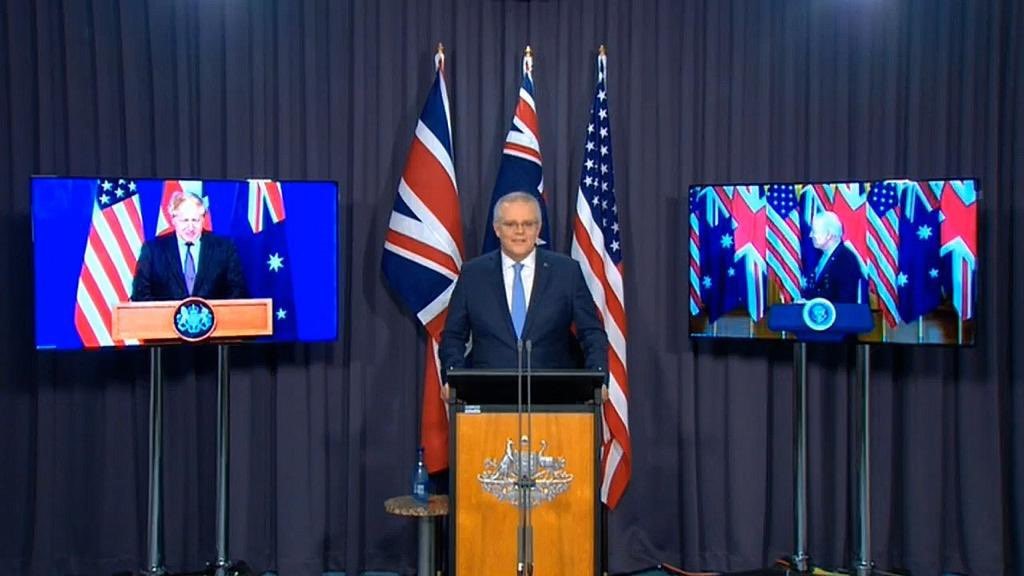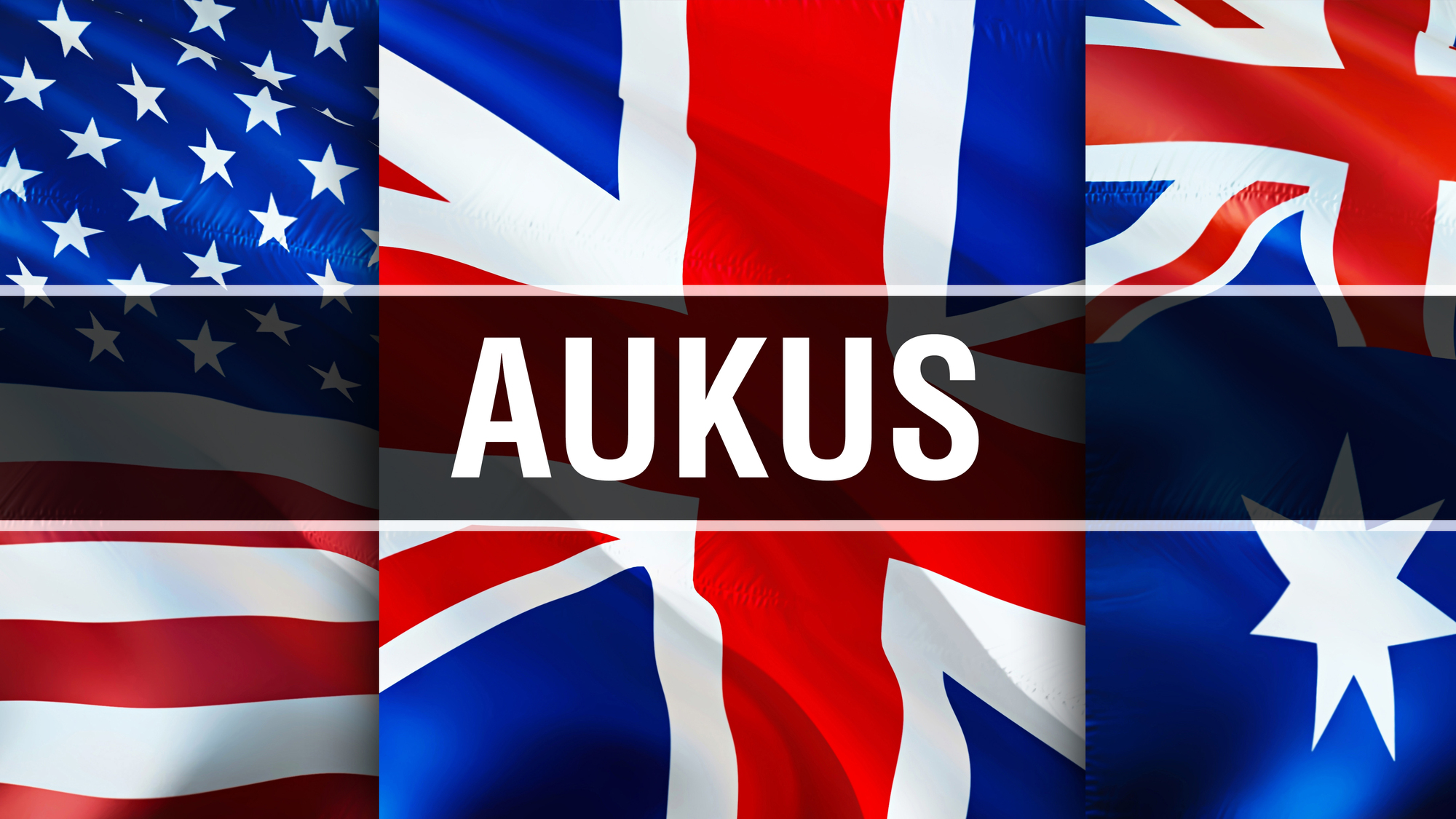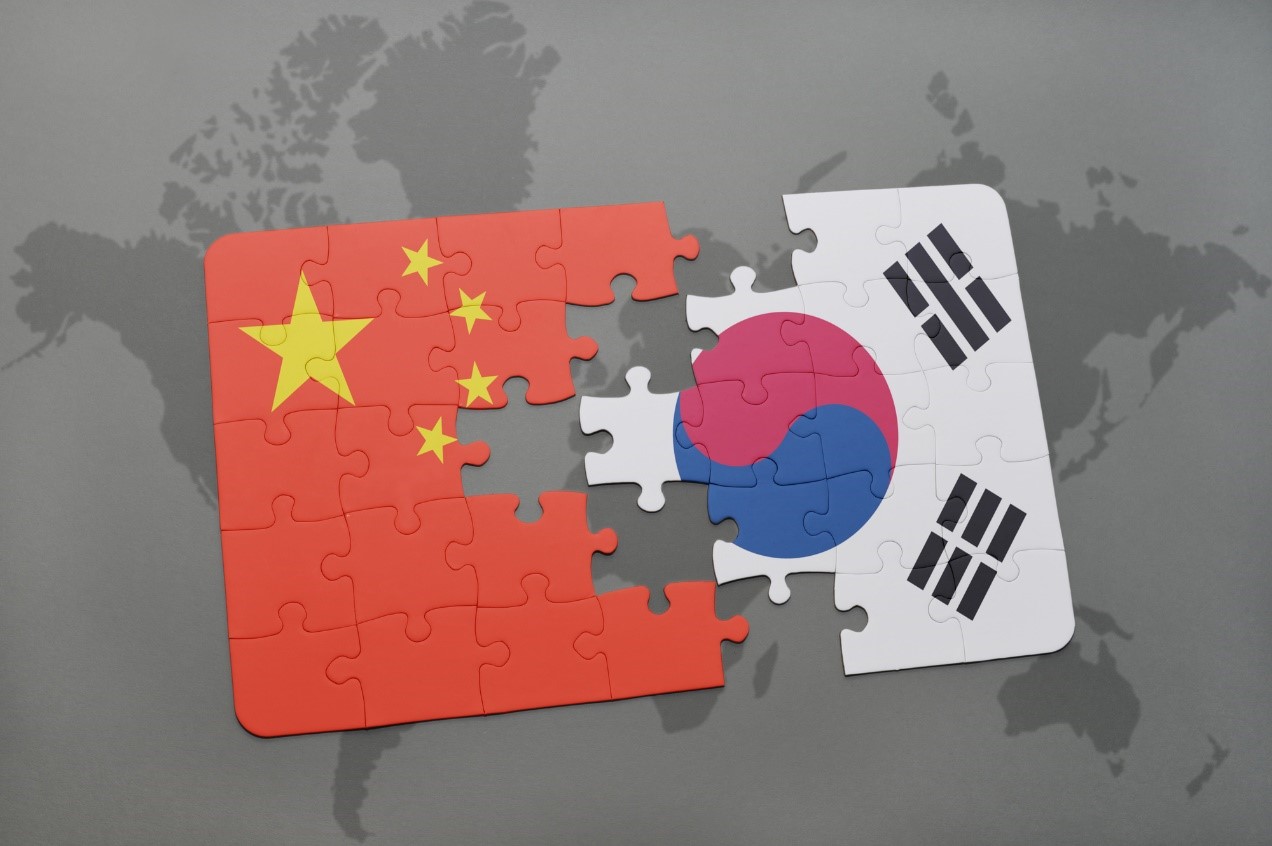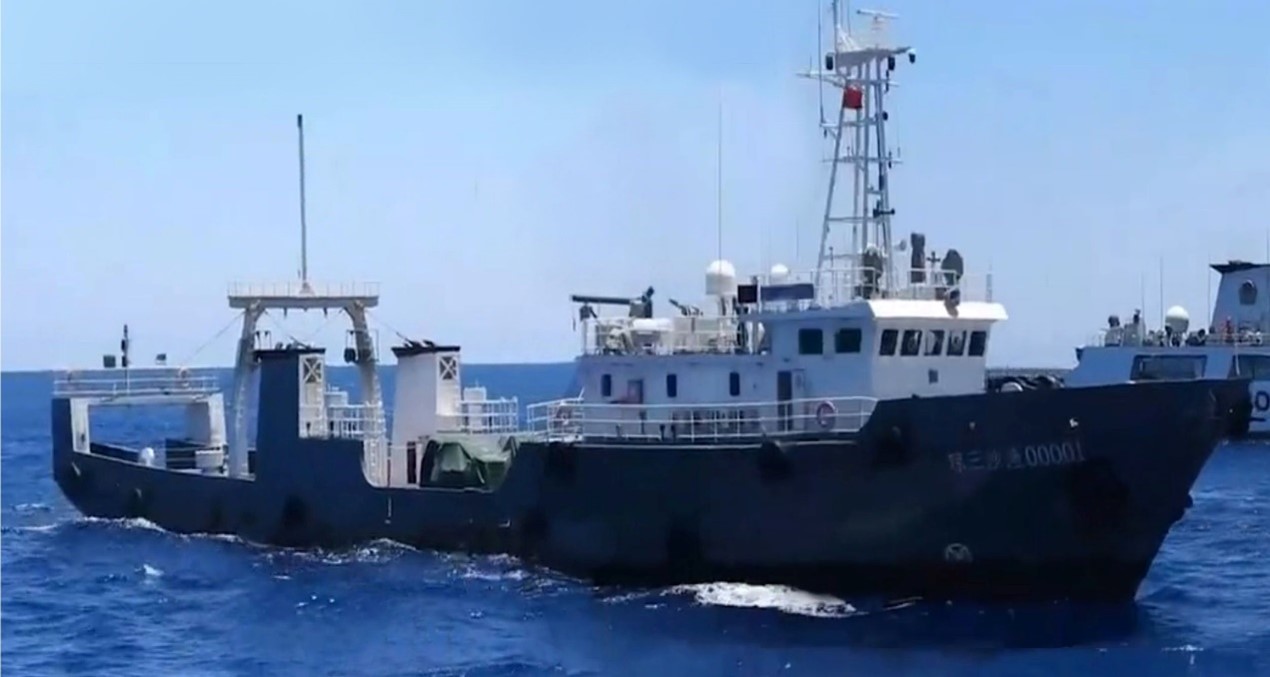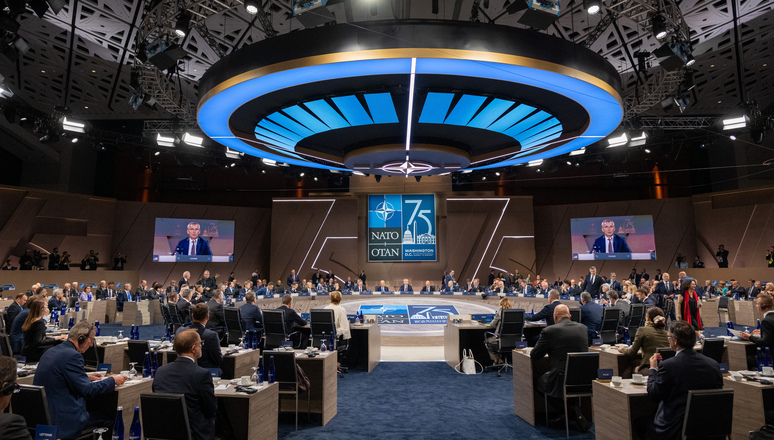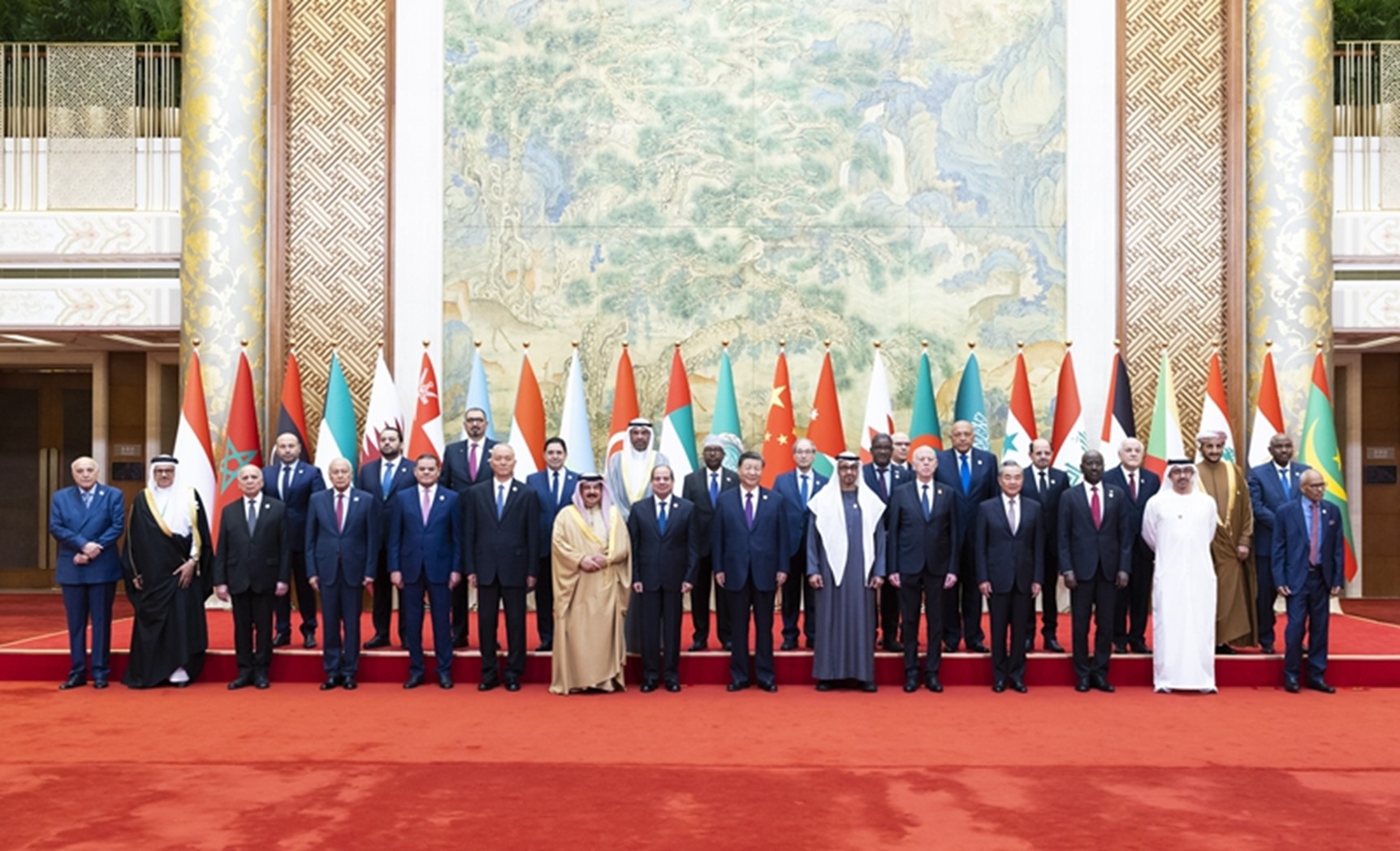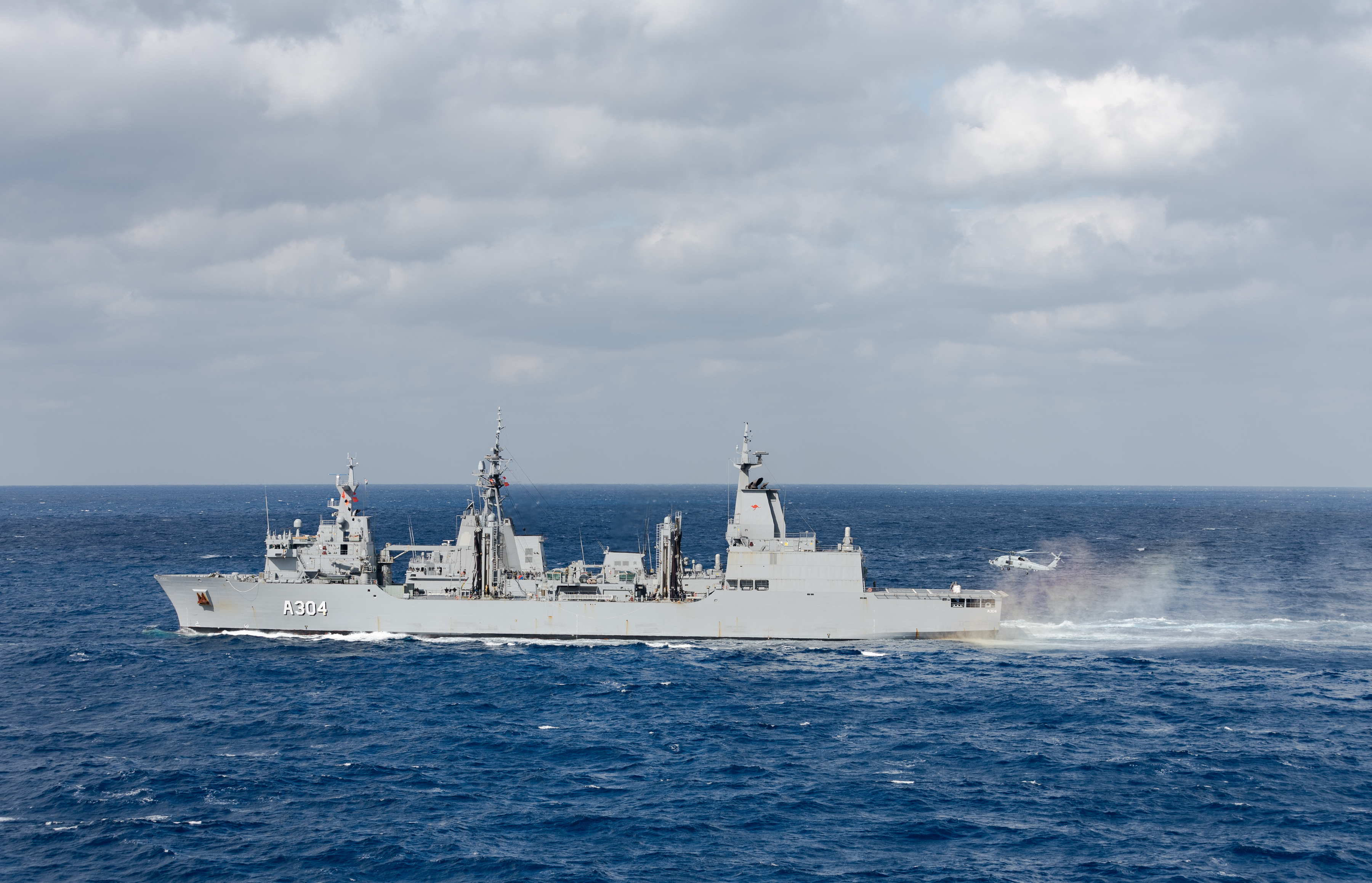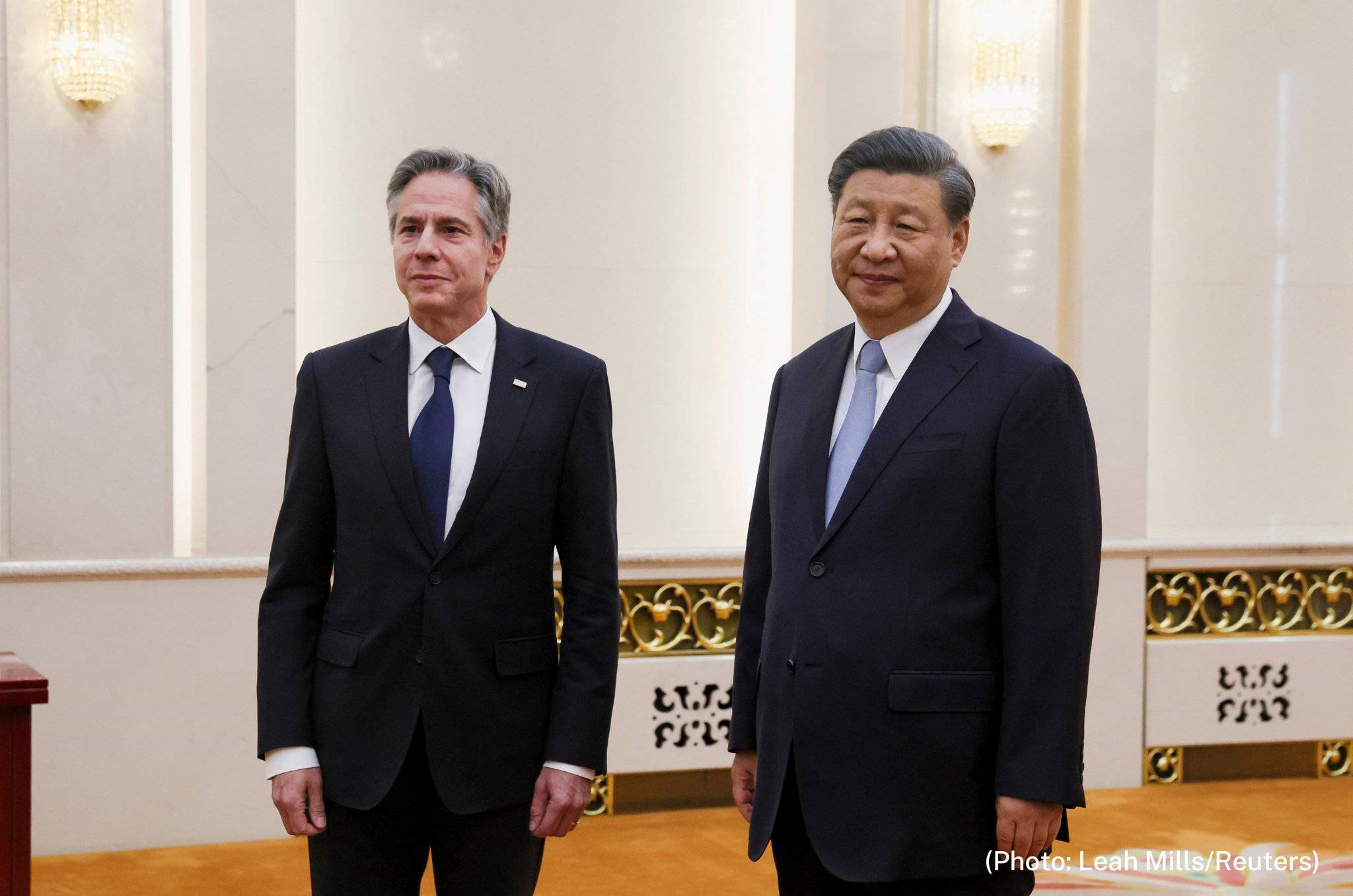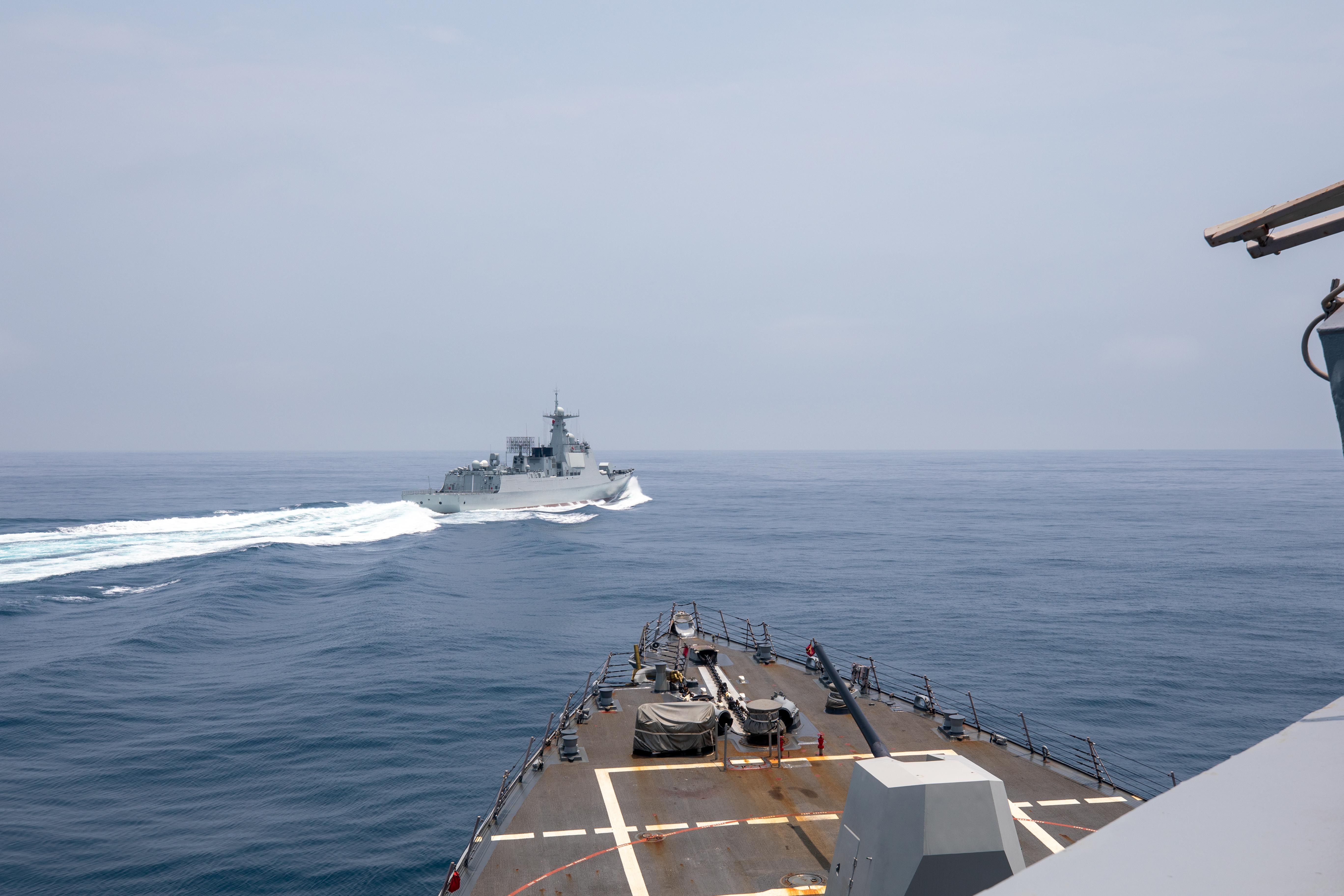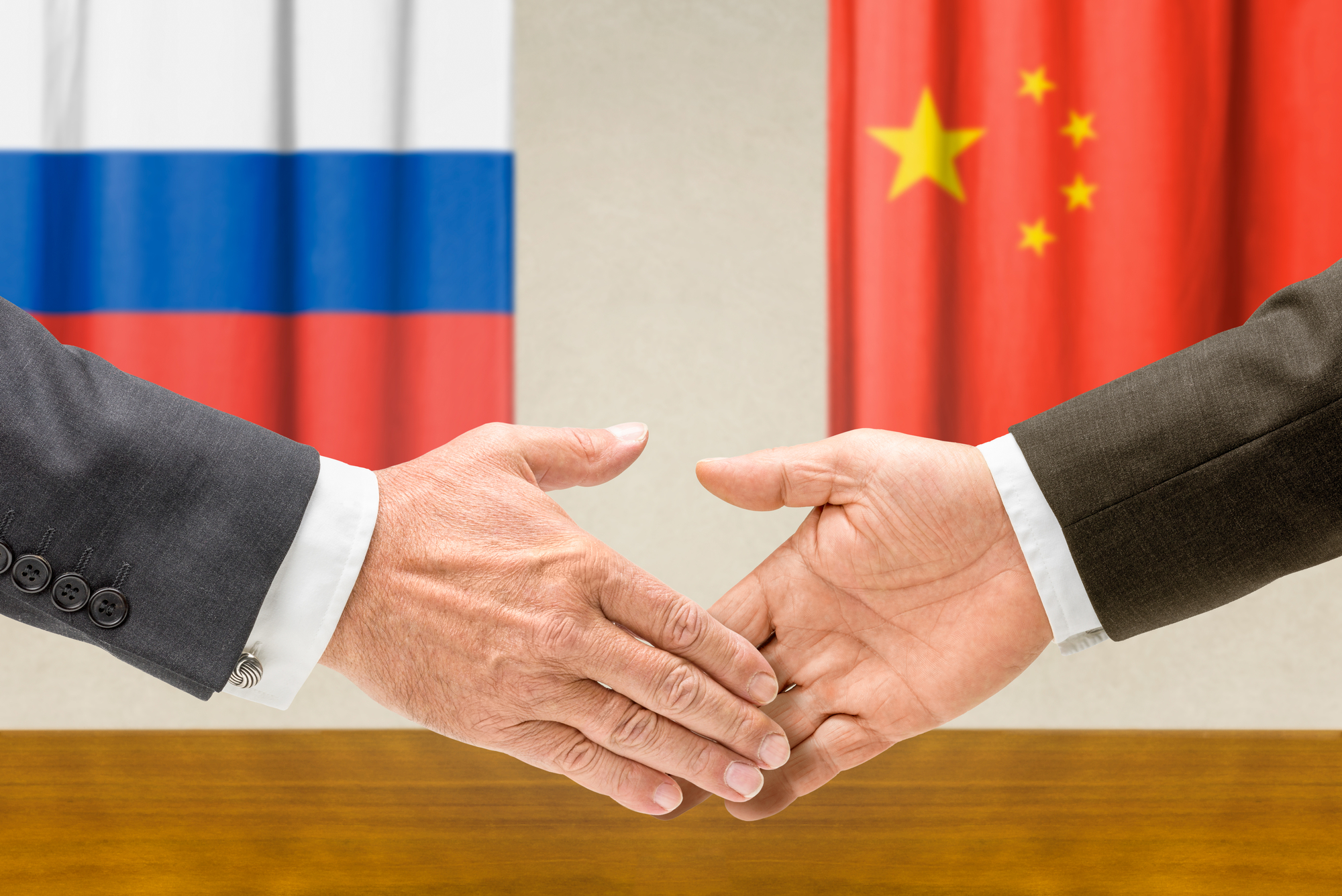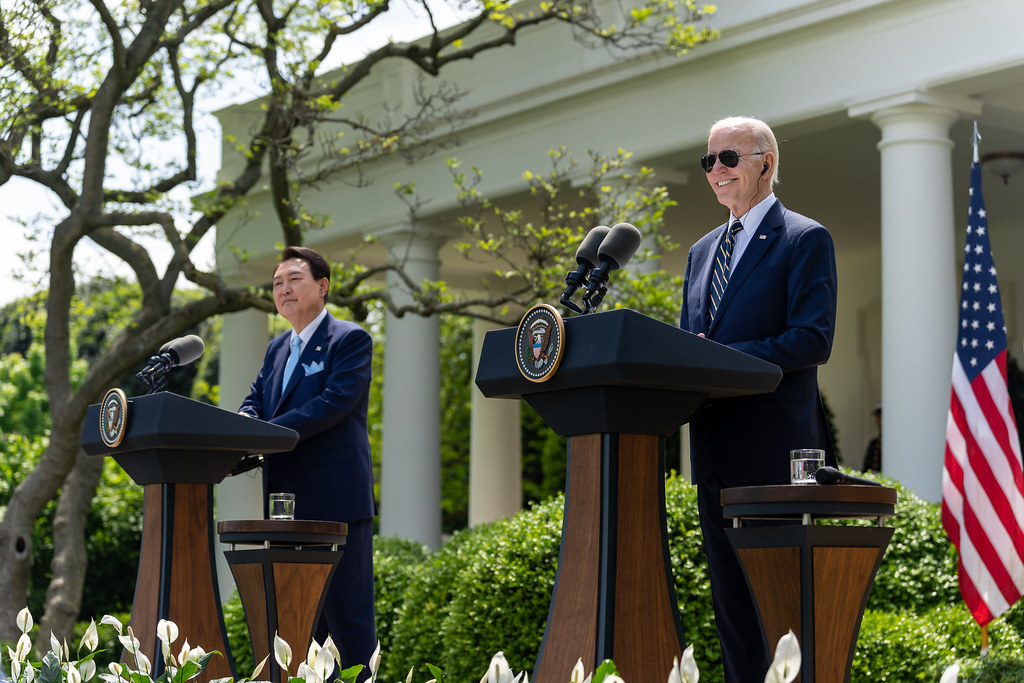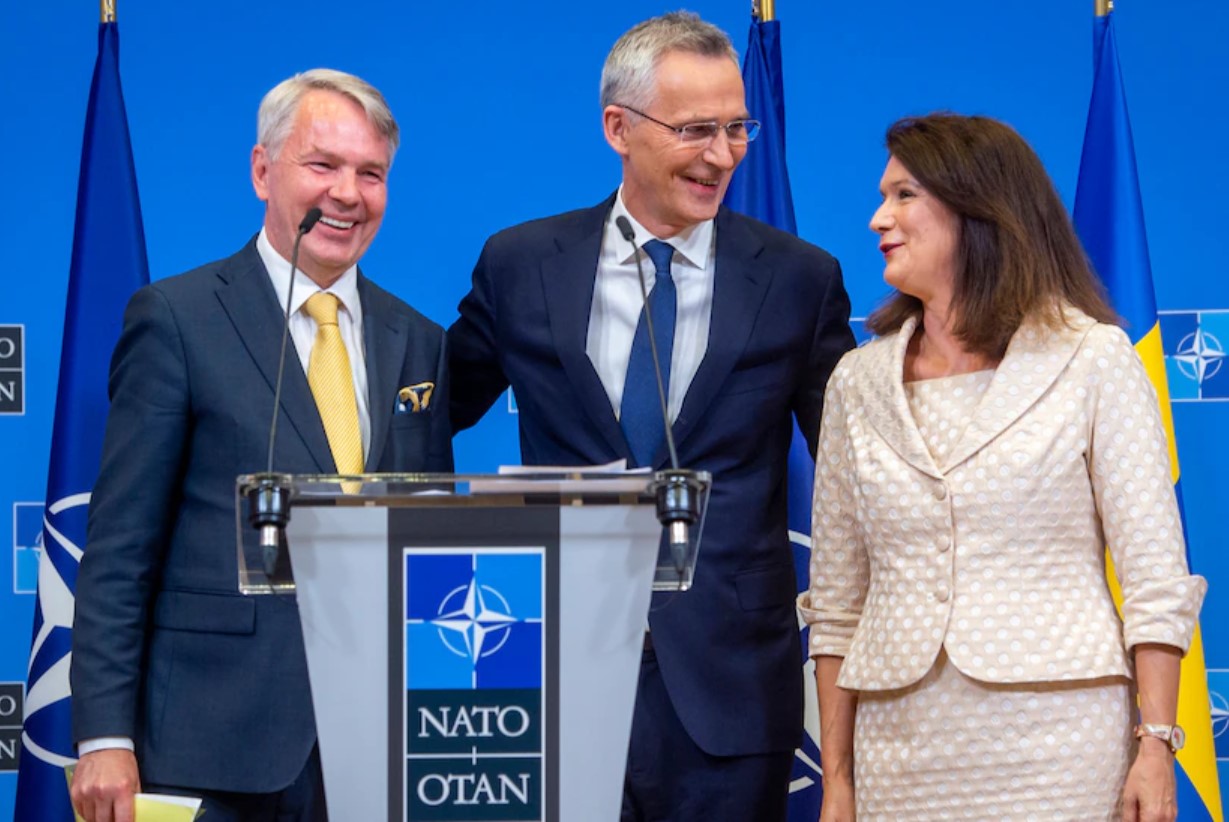Australia seeks to deter China. And it wants to maintain a US presence in Asia. AUKUS – a security trilateral between Australia, the United Kingdom, and the United States – may serve both purposes.
Picture source: Scott Morrison, September 16, 2021, Twitter,
Prospects & Perspectives 2021 No. 56
Australia’s AUKUS Gamble
November 1, 2021
Australia’s decision to build nuclear-powered submarines and pursue long-range hypersonic missile technology under AUKUS was made with one eye on China, and the other on the United States.
Australia seeks to deter China. And it wants to maintain a US presence in Asia. AUKUS – a security trilateral between Australia, the United Kingdom, and the United States – may serve both purposes.
Australia’s Shifting View of the Region
The latest signals from Canberra are a sign of just how much Australia’s calculations about the region have shifted. In 2009, when Australia first proposed acquiring submarines in a Defense White Paper, Canberra assessed that “China’s political leadership is likely to continue to appreciate the need for it to make a strong contribution to strengthening the regional security environment and the global rules-based order.”
Fast forward to 2021. It is no secret that the China story in Australia has changed. From Xi Jinping addressing Australian parliament in 2014 and touting the oceans of goodwill between the two countries, Beijing has now cut all high-level contact with Canberra.
Although China remains Australia’s largest trading partner by a wide margin, concern about China has become a driving force in Australian foreign policy. This reaches across every part of government. For example, Australia’s treasurer recently gave a speech about U.S.-China strategic competition. Days later, the defense minister spoke to the U.S. Chamber of Commerce about security challenges.
Australia, bruised but still standing from more than a year of targeted economic coercion from China, now appears desensitized to Beijing’s ire. And Australia is willing to play a much more forward-leaning role in securing the region. It is hard to imagine Washington sharing this technology with Canberra even just a few years ago.
The Australian public mood has also shifted in an unprecedented way: in 2021, more Australians see China as a security threat than as an economic partner to Australia, according to the annual Lowy Institute Poll.
This follows a calculation, expressed by Australia’s prime minister, that Australia must now contribute to a balance of power that is favorable to its interests in its region, working more closely with liberal democracies.
Doubling Down on the Anglosphere
With AUKUS, Australia has bet on the United States. This is only one prong of the strategy to balance China’s power in the region. Australia’s participation in the Quadrilateral Security Dialogue with Japan, India and the United States is another element. At the same time, Australia is frantically reassuring ASEAN states about what AUKUS is, or more importantly, isn’t.
But the bet involves side-stepping a lot of risk. Australia putting its chips on the United States requires an act of amnesia: forgetting the difficulties that allies faced under former President Trump, or ignoring the domestic political forces that could bring him back.
It also requires an act of faith: that partners in Asia will see Australia as creating the structures to enable a larger balancing coalition in the region in the future. The region has often questioned the staying power of the United States. Australia may be tying its future to the United States, but in the process, it is anchoring the United States deeper in the region.
This really does require faith, since its already clear that some countries are alienated by the AUKUS decision. As much as AUKUS is largely directed at China, it has not been Beijing’s response that has garnered the most attention. Canberra may well have steeled itself for more retaliatory measures from China, but Beijing’s statements have been formulaic and unremarkable to date.
Closer to home, the reaction has been mixed. Japan, Taiwan, the Philippines, India and Singapore support AUKUS to varying extents. Indonesia has expressed deep concern. Malaysia, a permanent host to Australia’s air force through the Five Powers Defense Arrangements, is looking to consult with China over the implications of AUKUS. The hype around AUKUS has already overshadowed the recent Australian ministerial visits to Delhi, Jakarta and Seoul.
A ‘Forever Partnership’ with the United States
In the sea of complaints about AUKUS, some of the loudest voices have come from within Australia. For all the claims that Australia was committed to an inclusive Indo-Pacific, AUKUS looks a lot like a retreat to the Anglosphere. And Australians are historically opposed to the acquisition of nuclear weapons.
Some Australians have also expressed concerns that this binds Australia to US foreign policy, and sacrifices some level of strategic autonomy. At the AUKUS unveiling, Australian Prime Minister Scott Morrison said: “Today, I announce a new partnership, a new agreement that I describe as a forever partnership. A forever partnership for a new time between the oldest and most trusted of friends.”
But the United States – and Australia’s leaders – should not take Australia’s support for granted. Many Australians have not yet recovered from the last time "forever" was associated with the United States. The tragedy of the fall of Kabul, and the end of Australia’s role in the forever wars, loom large in very recent memory.
Australia’s opposition foreign minister Penny Wong has asked: “With the prospect of a higher level of technological dependence on the US, how does the government assure Australians that we can act alone when need be; that we have the autonomy to defend ourselves, however and whenever we need to?”
Having said that, Australia has previously chosen to follow the United States into disastrous wars – it has not been compelled to under alliance obligations.
This anxiety about future wars carries political capital. Seven in ten Australians say the alliance with the United States makes it more likely that Australia will be drawn into war in Asia against its interests.
At the moment, China’s escalation of military pressure on Taiwan is one source of potential concern for Australians. The majority of Australians – 52% — see a potential conflict between the United States and China over Taiwan as a critical threat to Australia’s interests, which represents a sharp 17-point jump from 2020. Australian government language around Taiwan has shifted in recent months, describing Taiwan as a liberal democracy and critical partner for the first time.
Australia is attempting to walk a fine line: avoiding an arms race, signaling a firm commitment to defend against military aggression and attempting to ensure future US leaders will remain “forever” friends.
This strategy hinges on many moving parts, including U.S. staying power, regional attitudes towards China, and the willingness of the Australian public to play a frontline role in great-power competition. To that end, AUKUS is a gamble, and one laden with risk. But Canberra appears to see no other choice.
(Natasha Kassam is Director of the Public Opinion and Foreign Policy Program at the Lowy Institute in Sydney. She is also a Fellow of the Australian National University’s National Security College Futures Council and a member of the Advisory Board for the University of Melbourne’s Asian Law Centre.)


